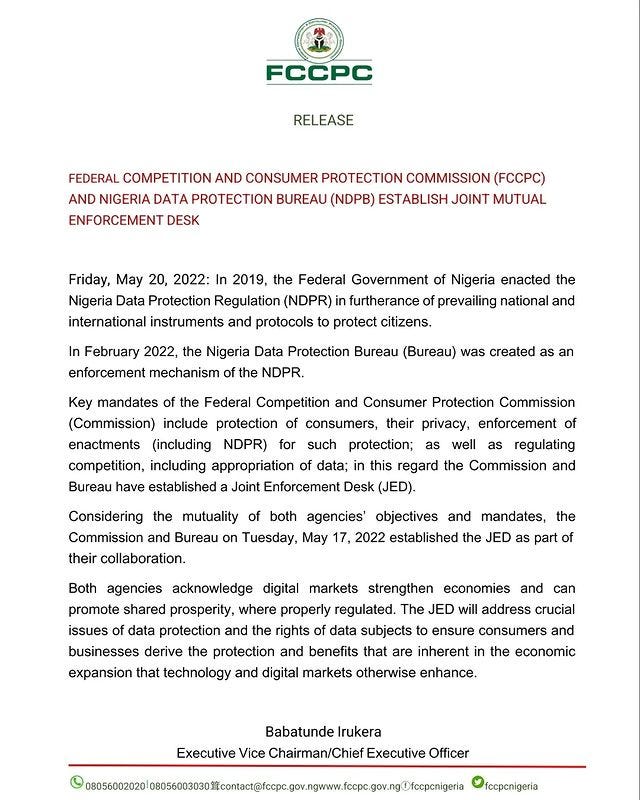Focusing on consumers
A consumer-centric approach to competition law
We’ve talked about how competition law exists to enable small businesses to thrive in an environment dominated by larger firms, to ensure job retention, and even to protect local shareholders of companies. In this article, the predominant focus will be on an emerging trend of competition authorities heavily focusing on consumer protection.
Putin’s aggression in Ukraine has come with major repercussions. You can be sure that competition matters have not been left behind. Reliance on oil and gas exports from the Eastern nations has caused a sharp rise in global fuel prices and in turn commodity prices. Nations and companies have in turn responded in a plethora of ways. The governments of Tanzania and Kenya have moved to implement a fuel stabilisation fund to ease the pain of consumers at the pump. Uganda on the other hand have left the laws of supply and demand to prevail, with concerns that the alternative approach risks collapsing their economy.
In nations where price stabilisation has been implemented, heavy monitoring of the behaviour of oil marketers has been at the forefront. Take for example the deportation of the Managing Director of Rubis Energy Kenya (Rubis) for what was considered ‘economic sabotage.’
Several oil marketers in Kenya, including Rubis, were accused of creating an artificial three-week fuel shortage by hoarding products. This was in a bid to push the government to provide for higher and timelier compensation of subsidies, i.e., for fuel sold in previous months at the stabilised prices. In addition, the marketers were anticipating a slight increase in prices in the next price review and would have enjoyed a bigger margin if they sold their product later. The result of dominant oil marketers holding onto product by neither selling to other independent companies nor supplying their own petrol stations, led to consumers queuing for hours at stations for the little fuel that could be salvaged.
In a shock move, the refusal by the Managing Director of Rubis Energy Kenya to budge and comply with the conditions imposed by the government led to his untimely deportation. In his defence, he had argued that the subsidy programme and delays in the compensation for selling at a loss negatively affected their cashflow thus making no business-sense. The regulator and government, however, viewed this as a case of a dominant firm abusing its market power for profits at the expense of not only the consumers but also the state. Soon after, the Competition Tribunal commenced investigations with an aim to punish the culpable oil marketers.
The Competition Commission of South Africa (CCSA) has not been left behind in ensuring that the actions of dominant firms do not hurt vulnerable consumers. Earlier this year, Roche Holding AG and its South African subsidiaries were referred to the Competition Tribunal for prosecution, for excessively pricing a breast cancer drug known as Trastuzumab. It is important to note that this matter was not merely assessed for excessive pricing as per competition law standards but went further to investigate the pertinent human rights concerns.
The CCSA considered that for a ten-year period, an estimated 10,000 South Africans had been denied access to the said drug as it was expensive. Thus, the pricing was deemed a violation of basic human rights. These were the right of access to healthcare, the right to equal treatment, the right to dignity, and the right to life, all enshrined under the South African Constitution.
The assessment of pricing of the life-saving medicine vis-à-vis women living with breast cancer saw the CCSA emphasise the primacy of consumer welfare in their considerations and objectives.
This trend has not only been seen in Kenya and South Africa, but we are beginning to see regional action against food products which risk harming the consumer.
Earlier this month, the COMESA Competition Commission (CCC) warned consumers across its regional member nations against eating certain flavours of indomie noodles, the popular student staple meal. This was after they were recalled in Egypt due to reports of some flavours containing traces of aflatoxins and pesticide residues. They were found unsafe for human consumption and could in the long-term lead to deterioration of health and even cause cancer.
It is however worth noting that this was limited to the seasoning of certain flavours and was not clear on the affected period. Nonetheless, I would advise all students and bachelors to stay clear of these products for now. It is safe to say (no pun intended) that these products are as toxic as Putin.
This is not the first time the CCC has acted to protect consumers from unsafe food. They previously warned consumers against Kinder Joy chocolate after their manufacturer, Ferrero, voluntarily reported some of their products to have come from a factory found with traces of salmonella.
Similarly, The Competition Authority of Kenya (CAK) also scrutinised food in a similar bid to protect consumers. The CAK stamped its foot on bread manufacturers by making it mandatory to include legible expiry dates on their bread wrappers, include all the true ingredients and comply with the standards prescribed by the Kenya Bureau of Standards. It is safe to say the competition authorities are aware that you are what you eat, and are ensuring we only eat that which is good for us.
At Compedia, we applaud the consumer-centric approach employed by competition authorities. As observed, when left to their own devices, companies can easily abuse their dominance for profits without due regard for the people. Yet, it is the people who build the nation and as such enhancing the welfare of consumers should always be a high priority.
Before you go…
…here are some recent developments in the world of competition law:
Anticompetitive lawyers: The Namibian Competition Commission (NCC) has commenced an investigation into potential anticompetitive conduct between a law firm, Dr Weder, Kauta, and Hoveka, and a bank, Bank Windhoek. The two entities are alleged to have entered into an exclusive arrangement for property conveyancing, meaning that, customers obtaining loans from Bank Windhoek are allegedly forced to use Weder’s legal services. The agreement limits competition by preventing other law firms from reaching the customers and also by preventing customers from choosing between different law firms. In a previous post, Fola considered whether law firms could be anticompetitive. He argued yes. And the NCC seems to agree.
False advertising: The Competition Tribunal in Kenya recently penalised Royal Mabati Factory Ksh. 2,700,000 (or $26,500) for misleading its customers contrary to Kenyan competition law. This was premised on complaints raised regarding late deliveries in contrast with their advisements and representations and clients being forced to change their orders after payment has already been made due to the products allegedly being out of stock. In other instances, delivery fees were charged despite being advertised and quoted as being free and the manufacturer unreasonably delaying the in remitting of refunds. In addition to the fine, Royal Mabati were required to refund customers with outstanding complaints beyond 60 days or deliver the specified roofing materials ordered to their premises within 30 days.
Data protection and competition:
Cartels: There have been some interesting cartel-related developments in South Africa. First, the Competition Tribunal found Esor Group guilty of price fixing, market allocation, and collusive bidding in construction related markets. The companies in the group concluded agreements among themselves, which fixed bidding prices, and allocated customers and projects among themselves. Second, the City of Cape Town entered into a settlement with three construction companies—Stefanutti Stocks, WBHO, and Aveng—who allegedly inflated the cost of constructing South Africa’s famous Green Point stadium during the 2010 FIFA World Cup. Competition enforcement saves taxpayer money.






